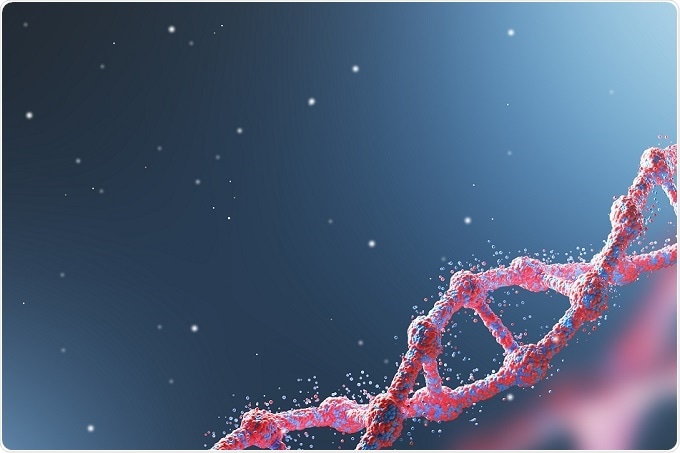Preliminary results from NASA’s Twins Study have revealed some of the bodily changes that occurred in an astronaught, who spent almost one year in space, compared with his twin brother, who remained on earth.
 Credit: ImageFlow/Shutterstock.com
Credit: ImageFlow/Shutterstock.com
By studying two people who share the same genetics but are in these different environments for one year, scientists hope to find out how the body is affected by an extended period spent in space.
Integrated Omics investigator Mike Snyder reported altered lipid levels, which is an indicator of inflammation. He also observed an increased level of 3-indolepropionic (IPA) in the twin who did not go to space. IPA is only produced by gut bacteria and is being researched as a potential brain antioxidant. It is also known to aid the regulation of blood glucose levels after meals.
Professor of Radiation Cancer Biology and Oncology, Susan Bailey, looked at the effect space travel had on the astronaut’s telomeres. The current understanding is that, over the course of many years, telomeres become shorter as a person ages. Bailey found that after just one year in space, the white blood cells contained chromosomes that had extended telomeres at their ends.
RNA sequencing of the twins’ white blood cells, performed by genome sequencing expert Chris Mason and team, showed differences between the brothers in the expression of more than 200,000 RNA molecules.
“Some of the most exciting things that we’ve seen from looking at gene expression in space is that we really see an explosion, like fireworks taking off, as soon as the human body gets into space,” says Mason. The team will be looking further into whether a “space gene” could have been activated during time in space.
Epigenomics researcher, Andy Feinberg, found that the degree of chemical modification to DNA (methylation) in the astronaut’s white blood cells decreased while inflight, but returned to normal once he was back on Earth. There was variability in the methylation patterns for both twins, but it was slightly greater in one of the twins while he was in spaceflight compared with once he was on Earth.
Mason refers to the study as one of the most comprehensive views of human biology:
It really sets the bedrock for understanding molecular risks for space travel as well as ways to potentially protect and fix those genetic changes.”
NASA says the studies are far from complete and that additional analysis is currently being carried out. Continued research and integration of these preliminary studies is hoped to ensure that future space missions continue to be safe, efficient and effective. The final results of the Twins Study are due to be published in 2018.
Sources